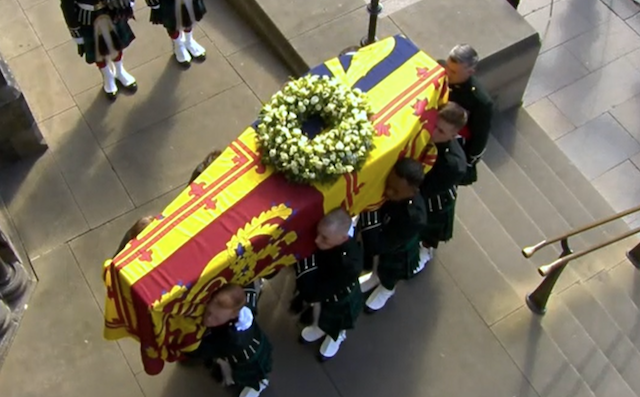History tells that the Jallianwala Bagh massacre took place in 1919. The massacre saw the shooting of a large crowd of unarmed protesters in Amritsar Punjab in India. Brigadier-general R. E. Dyer, the commander of the British forces during pre-independence India at the time was the chief culprit; he gave the order for the massacre. What happened eventually was that an estimated number of over 1500 people were brutally murdered, not to say anything of the over 300 people who sustained various degrees of injuries.
Following this incident, the Anglo-Indian author, Rudyard Kipling, made a very damning remark: “Dyer did his duty as he saw it.” I am not sure Kipling was in his right senses when he made this statement, but the silence of the American and British media was very palpable. Neither of them could rebuke the insensitivity exhibited by Kipling.
There was no backlash at all. Over 1500 people in cold blood, just like that. And just about when reason could have prevailed, history informs us that the British authorities came short of their presumed genteel and betrayed the virtues of humanity. 78years later after the massacre — in 1997 — when the late Queen Elizabeth II and her late hubby Prince Philip visited India, which turned out to be their first and last, they only performed their ceremonial duty of laying wreath of flowers to honour victims of the massacre.
Not a word of apology was offered by the late Queen or her late husband on behalf of the British empire for Dyer’s bestiality. Nothing pacifying was even initiated. Yet we know that it would be impossible for the pain of that tragic event to be wiped out from the annals of Indian history. In October of 2011, came another slur, another silence. The North Atlantic Treaty Organization (NATO), chaparone, of course, by America and her allies, conspired to take out then Libyan strongman, Muammar Gaddafi. Missioned planned, mission accomplished.
Gaddafi was assassinated in the goriest fashion . Around about this time, then US Secretary of State Hilary Clinton was in Tripoli, the Libyan political capital. Fielding questions from news reporters in regard to Gaddafi’s death which had just happened, it is on record that Clinton gave a response that was at once brutal and shocking: “We came, we saw, and he died.” So Clinton’s response went, and it wasn’t said about a mad rabid dog, nor a chicken; it referred to Libya’s de-facto leader of 42years, who had just been murdered.
The world saw nothing wrong in what Clinton said. The way the world heard what she said was the way they forgot them. No one also threw jabs at her for speaking ill of the dead. Perhaps, because Clinton is not one of those dubbed as subalterns — a people presumably condemned to the margin. Anyway, that’s by the way.
One of the most ridiculous statements I have heard people say is: “don’t speak ill of the dead.” Oh, Com’on, just enough of that already! Good men are often praised or vilified, whether dead or alive. Likewise, notorious men. You can’t tell people of the world today not to speak ill of the Auschwitz-in-Chief, Adolf Hitler, infamously credited with supervising the Nazi genocide that led to the death of 6,000,000 Jews. Were Hitler’s mother alive, she herself would have cursed the very day she conceived him. Of course, you can’t tell Americans not to speak ill of Osama Bin Laden.
Not after he masterminded the September 11, 2001 attacks, which snuffed out the lives of almost 3,000 people and instigated President George W. Bush to invade Afghanistan. Closer home, hardly anyone in Nigeria would say pleasant things about Abubakar Shekau, the late former Boko Haram leader. The escapades of the Nigerian armed robbery kingpin, Lawrence Anini, who terrorised Nigeria of the 1980s were not praiseworthy.
Same way, Pa Reuben Fasoranti, the former Afenifere leader, would have nothing good to say about those marauders who killed his daughter, Mrs Funke Olakuri. Don’t speak ill of the dead, my foot! As it is usually the case, the pain of death is felt not by the deceased, but the bereaved. It is indeed true what they say, worries and pains are the province of the living. Queen Elizabeth is no more. Whatever is said about her now — good or ill — are the burden we have chosen to bear, the lessons worth learning, and the duties owed to ourselves.
What led to all that has been said so far are two major events that happened last Thursday. The first is a tweet put out by Uju Anya, a Carnegie Mellon Professor. The second, of course, is the death of Queen Elizabeth II, mother of King Charles III. The tweet: “I heard the Chief Monarch of a thieving raping genocidal empire is dying.
May her pain be excruciating. This tweet went public, and shortly after, the world knew of the Queen’s passing. Surely, Uju Anya has been receiving some flak for showing no sympathy and for mocking the dead. Trust the British media, they have used the occasion of the Queen’s death to create razzmatazz and to further project the tradition of the British empire. But beyond this, there is something very striking that the death of Queen Elizabeth II has done — it has afforded people in former British colonies the opportunity to once again undertake a reassessment of their colonial history. Yes, professor Anya’s tweet contains hatred. It is blunt. Spiteful too. But her tweet creates avenue for serious introspection; it is a call on people from so-called former British territories to be conscious of the root of their present pains.
Among other things, Queen Elizabeth II has been credited with reviving the clout so cherished by the British empire. Her accession to the throne in 1953 came at a time when the British empire was losing her influence in colonial territories. There were various independence movements which agitated for self-rule. Of course, the empire needed to stamp her authority, and this caused some economic strains on Britain. At a point, it appeared as if the economic loss incured by the empire outweighed her gains.
Somehow the late Queen revived the firepower of the empire, and Britain once again regained her dominance in global power. But Queen Elizabeth II was not a saint as the global north or even the British media would have us believe. Her passing is certainly not the end of colonial influence. She was at the forefront of colonialism. She made attempts to scuttle independent movements — the Mau Mau Uprising that happened in Kenya between 1952 and 1960 being one of them. In Nigeria, her legacies were not all in the positive.
History tells, for instance, that during the Nigerian-Biafran civil war of 1967-70, the British took sides with the Nigerian forces against the Biafran forces, supplying the former with arms and ammunition to crush the latter. What ensued was that 2,000,000 Igbo people were massacred, not to comment on those who were displaced and lost their valuable property. Twice she visited Nigeria — 1953 and 2003 — but showed no remorse for the poor adjudicatory role played by her country during the civil war.
It is against this backdrop that Uju Anya has tweeted. Her tweet was borne out of deep pains, an irreparable loss suffered by her and those like her. She tweeted to lament an everlasting loss, the worst of experience perpetuated by the British empire. The hatred her tweet expressed is even more than the hatred some sections of Nigeria have for her people, courtesy the faulty foundation laid, in part, by the British monarchy.
There are Royalists who have completely exonorated the late Queen on the ground that she is just a Head of state, and that her function is only ceremonial. But she savored the ‘spoils’ cornered by her colonies and reaped from the adoration that came out of it. There are some who have said now is not the time to talk about the negative impact of colonialism. Would there ever come an appropriate time? There are those who have come at Uju Anya, and expressed the view that rather than nurse hatred for Queen Elizabeth II, she should rather be thankful to the United Kingdom for her ‘civilizing mission’, and that were it not for that the people of Africa would still be living in the dim before past. Still more, others have said her hatred has eaten her up and has poisoned her soul. In light of the preceding view, it can only be said that no one can help another feel pain or carry a burden.
The pain of a person is better defined and expressed by that person. There is no ideal time to express pains. Anya’s tweet is more than a statement of hatred. It has little to do with speaking ill of the dead The tweet is more of an expression of a loud present truth. We continue to dress hypocrisy and attempt to make it more attractive than the truth. Governments of countries in Africa are still tied to the apron string of their colonial masters, framing policies to express their loyalty and taking decisions that many a times are not in the interest of their own people. Igbo people were massacred. This truth cannot be swept under the carpet. The pain of it cannot be eroded likewise.
Even till date, the ghost of that civil war is as haunting today as it was in the early period after the war.. Present generation of Igbo who didn’t even experience the war are now enmeshed into a murky world of paranoia. Queen Elizabeth II may not have been directly responsible for this, but she was a major symbol of that authority. The vestiges of the civil war are upon the Igbo people today and has conditioned them to look as if they have hobson’s choice. Is it not time, especially with the accession of King Charles III, to remind of the truth and set the records straight? How might the truth be told? Should it be dressed up ? Should we continue to pretend, then, that now that Queen Elizabeth II is no more, the colonial ghost no longer haunt?
Mr Ochibejivwie writes in from Warri, and can be reached via his email at lexzyochibejivwie@gmail.com







